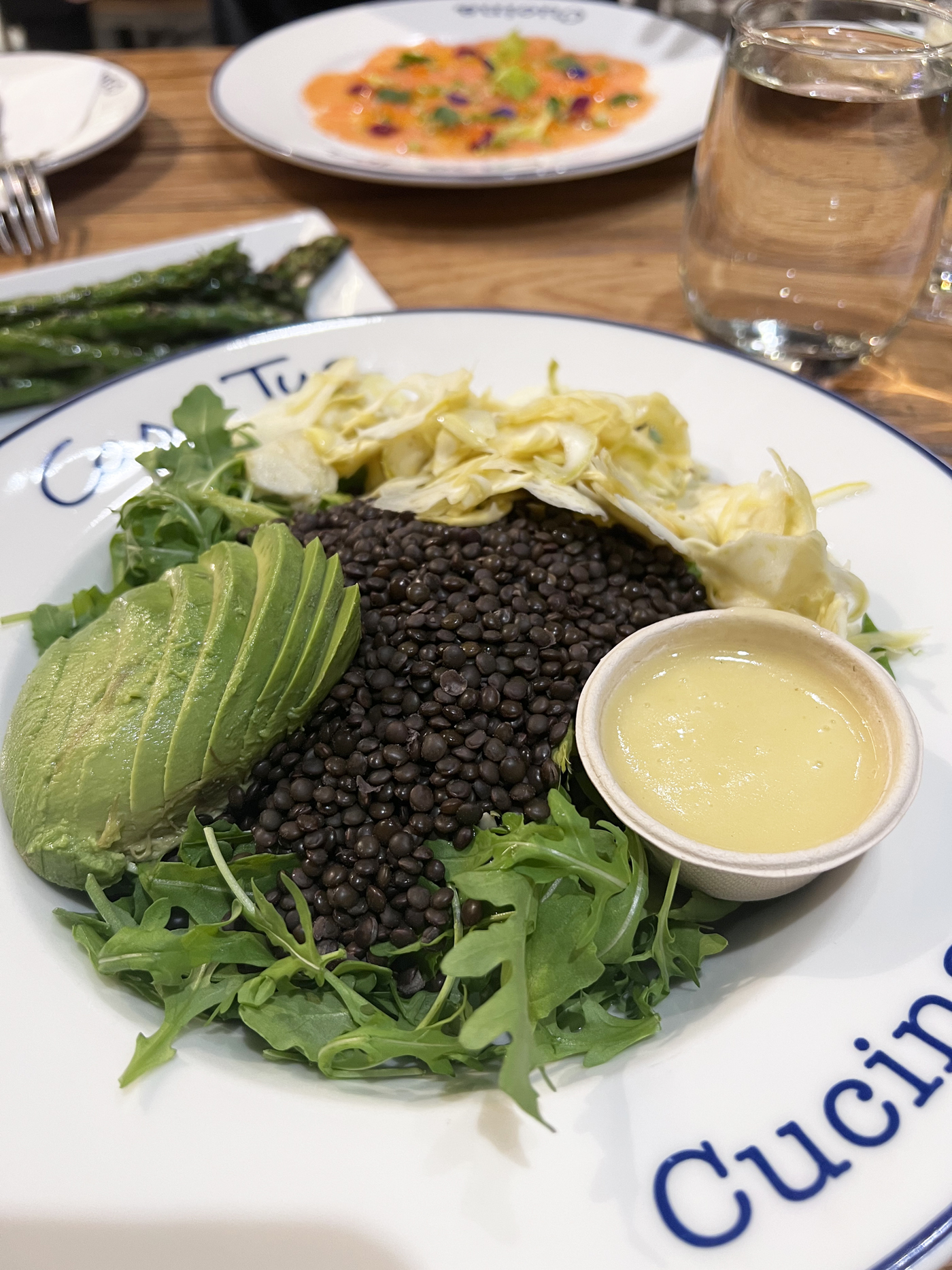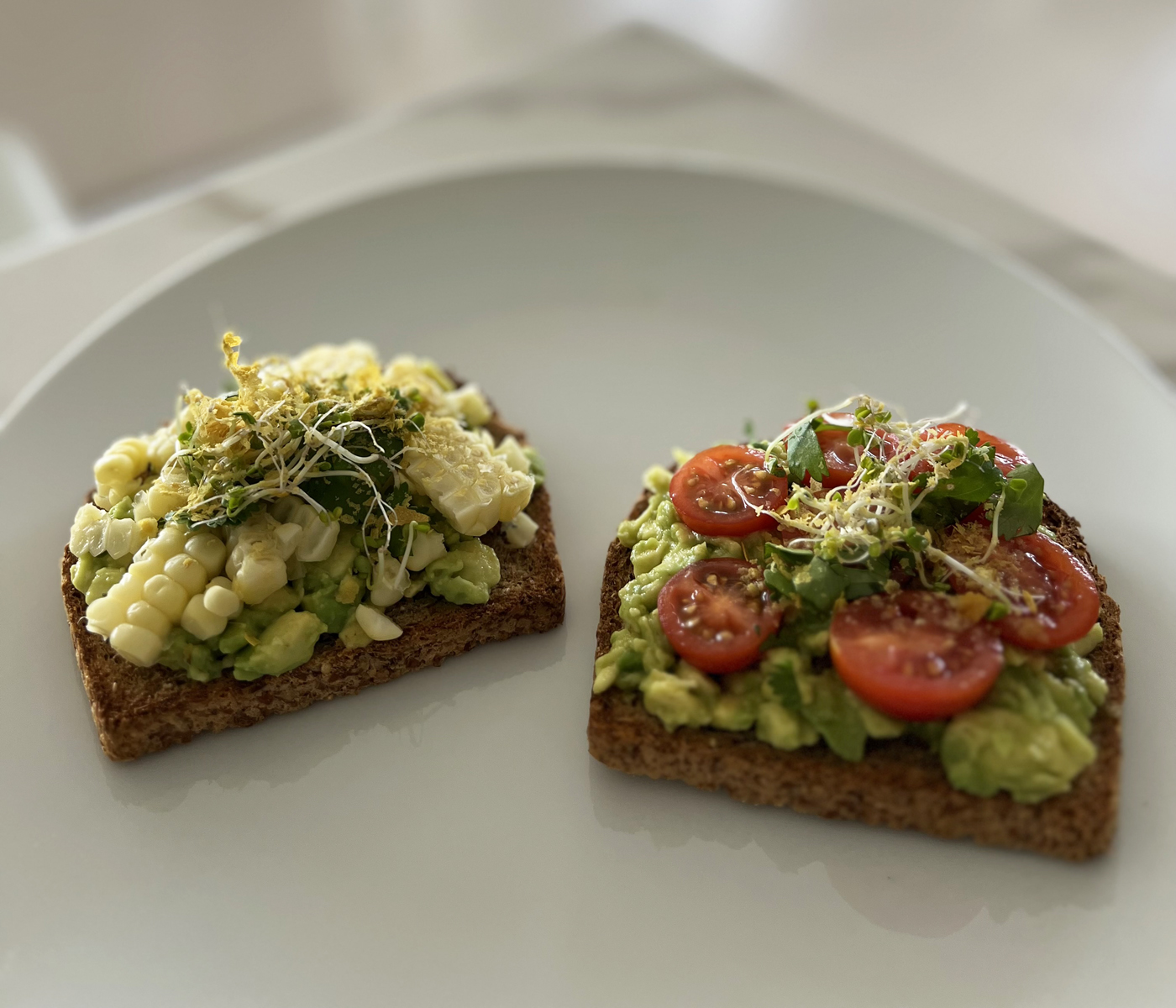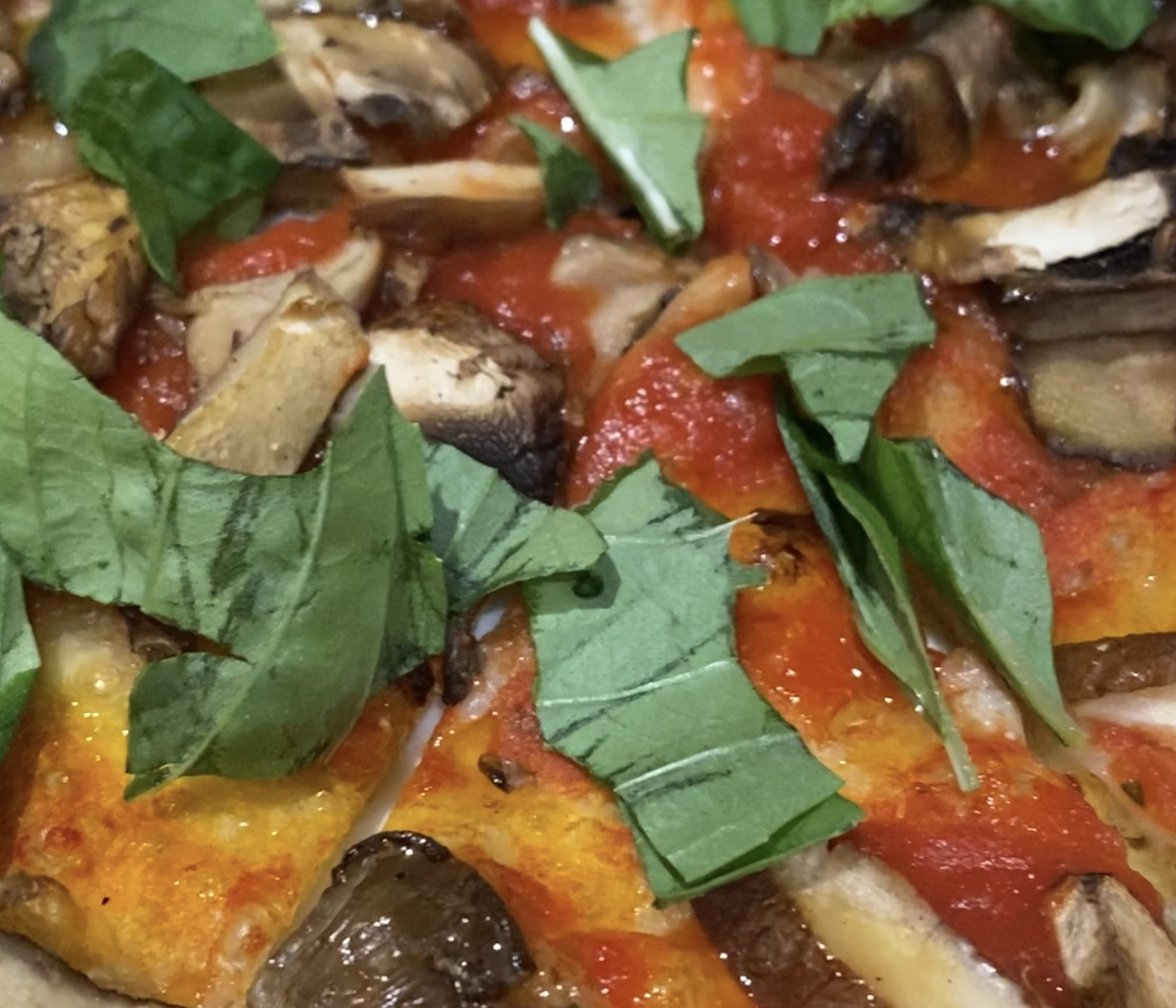What I eat on a typical weekend in Miami.
On any given day, I eat 1800-2200 calories. I actually eat more than my husband; he affectionately calls me Chancita (little piggy in Spanish).
I do a 16:8 intermittent fast when I’m at home. That means I have an 8-hour window of time when I eat and a 16-hour window when I go without food (usually I start fasting at 7 pm and eat at 11 am the next day).
In case you don’t know, fasting does wonder for your health. You don’t have to look very hard to find numerous studies that show it helps with weight management, and longevity, it reduces inflammation and insulin resistance, and it helps remove cellular waste through a process called autophagy (there are other benefits as well, but I’ll let you look those up yourself 😉).
About two years ago, I started to intermittent fast. Since then, I sleep better, I have more energy, and less fat.
I follow a dirty fast because, in the morning, I drink coffee with a small dose of MCT oil. Medium-chain triglycerides don’t knock you out of ketosis because they go directly to the liver. MCTs are converted into ketones (your brain loves this fuel) and studies show they boost energy and increase satiety (they make you feel full), that means, you can continue to fast without those hunger pains, and most likely eat less later in the day.
I should mention, I’m plant-based, but no, I don’t think it’s for everyone. If it works for you, great, if not, don’t do it! Listen to your body! My husband follows a Pegan diet (basically the same as a Vegan diet, but instead of just getting his protein from plants, he gets his protein from animals (grass-fed meat and wild-caught fish).
Typical Weekend Consumption:
- Coffee + Lion’s Mane Extract & MCT Oil
- Avocado Toast
- Golden Kiwi
- Fresh Coconut
- Kale Chips
- Arugula Salad w/Lentils and Avocado (dressing on the side)
- Margarita Pizza with mushrooms and no cheese
My food philosophy:
- Eat lots of colorful fruits and vegetables (focus on low-carb fruits like berries, kiwis, and tomatoes, and non-starchy veggies like mushrooms, broccoli, cauliflower, etc.)
- Focus on eating foods filled with fiber, protein, and healthy fats
- Add superfoods, adaptogens, and functional foods whenever you can!
- Avoid fried foods, highly processed foods, and sweets




